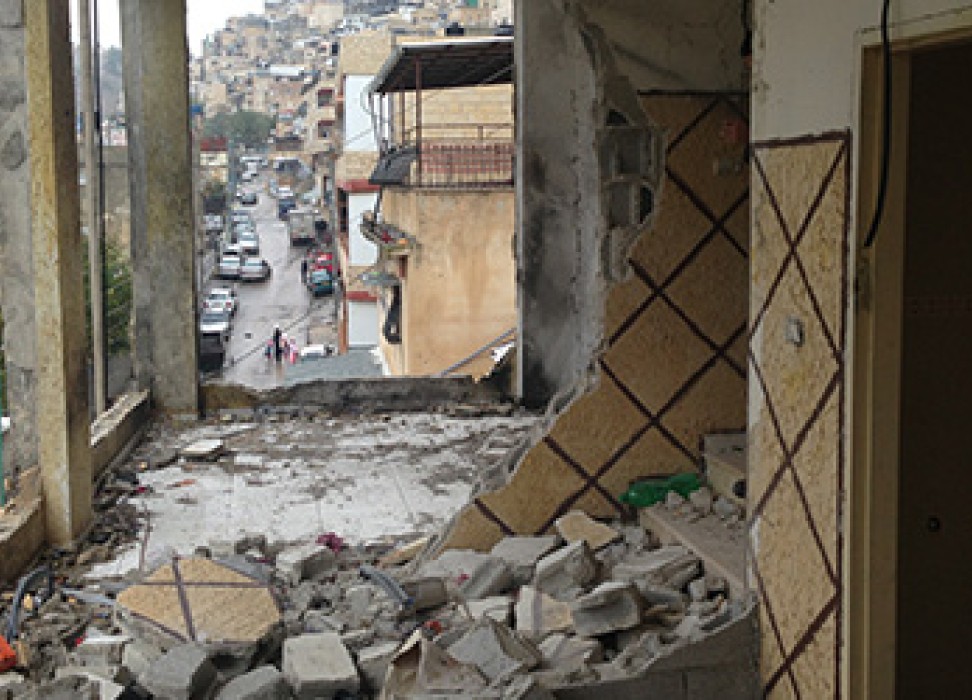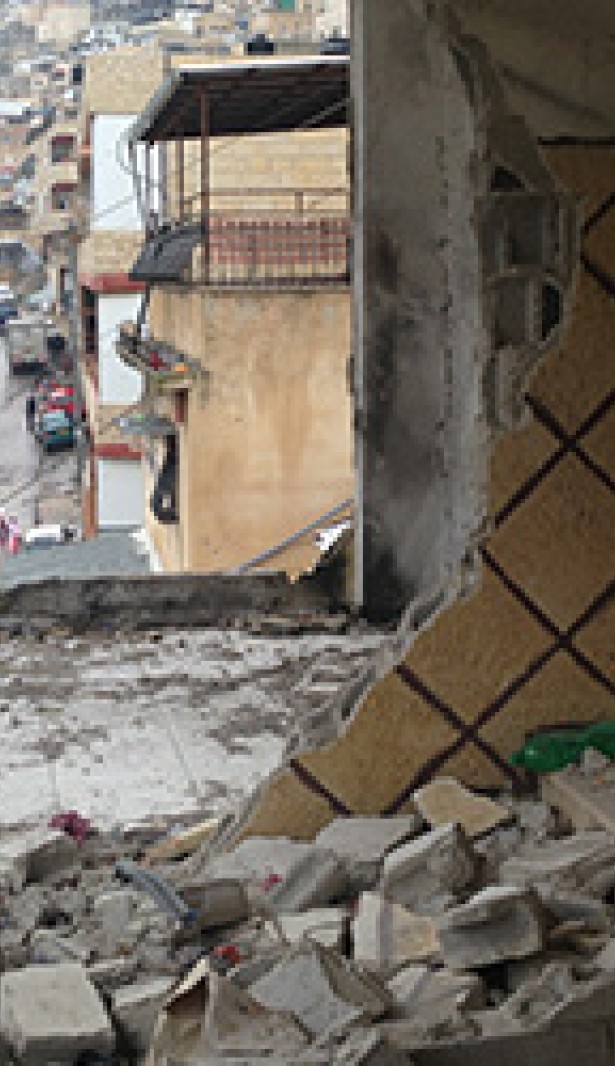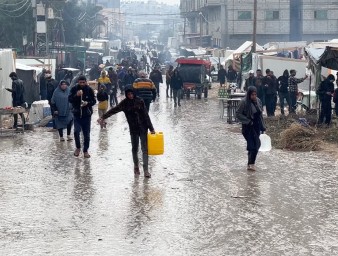Punitive demolitions destroy more than homes in occupied Palestinian territory
28 December 2015

Inas Al-Shaludi had just buried her oldest son, Abdel-Rahman, and was trying to come to terms with the news that he was responsible for the deaths of two people in what the Israeli authorities called a terrorist attack, when more bad news arrived: her family home was to be destroyed.
“We had to remove all our belongings and find a place to stay,” she said. “We were shocked with the loss of our eldest son; before we had finished receiving condolences, we were faced with the demolition of our house.”
Al-Shaludi’s family home in East Jerusalem was destroyed in November 2014, by order of the Israeli Defence Forces (IDF). The incident in which her son was involved left two dead, including a three-month old baby, and seven injured in October. The Israeli authorities called the action a “deliberate terrorist attack”, stating that Abdel-Rahman had intentionally driven his car into people waiting at a tram station. The family dispute this, saying it was an accident, and he lost control of his car. Eyewitnesses said private security guards shot and killed Abdel-Rahman shortly after the crash.
Punitive home demolitions
The UN Human Rights Office in the OPT has monitored and documented punitive home demolition cases, including the case of the Al-Shaludi Family. In 2015, the Office presented a report to the Human Rights Council regarding the resumption of the practice, stating it breaches the Fourth Geneva Convention, and violates a range of Israel’s human rights obligations, and underlining that no-one should be punished for an act they did not commit.
The Israeli authorities have previously said the practice issues “a severe message of deterrence to terrorists and their accomplices – that they will pay a price if they continue their terrorist activities and harm innocent people.”
Yet Israel formally halted the practice in 2005, when an IDF panel reviewing the practice concluded that the demolitions were not an effective deterrent and sparked hatred and hostility. The Israeli authorities resumed the practice in 2014.
The UN Special Rapporteur on the situation of human rights in the Palestinian territory has condemned the practice. Earlier this year, Makarim Wibisono told the Human Rights Council that there was no legal nor ethical stand point for families to be punished for the alleged actions of a relative.
“In short, punitive home demolitions are an act of collective punishment that contravenes international law,” he stated.
Inas Al-Shaludi said her family had nothing to do with Abdel-Rahman’s actions, a claim that has not been disputed by the Israeli authorities according to the information available to the UN Human Rights Office in the OPT. Yet the house was destroyed one month after the attack. The family of seven was forced to split up, dividing themselves among the homes of extended family members.
Al-Shaludi said the effect on the family has been far reaching. A daughter who was scheduled to sit for exams was unable to study and as a result either missed some exams or was unsuccessful in passing others. Financial difficulties arising from the costs of keeping the family housed have forced her to withdraw two of their children from college. But the biggest toll has been on her husband.
“His thinking is confused,” she said. “He forgets things and keeps on feeling pain in his legs. He keeps telling me that he cannot think and that he feels so scared for the future of his sons and daughters.”
Unfair Punishment
Under Israeli law, those subject to punitive home demolitions do have the chance to appeal the demolition order to a court. The Al-Shaludi family however chose not to file an appeal, saying they did not believe they would get a fair hearing. The UN Human Rights Office maintains that no court procedure can legitimize a practice which is incompatible with international law.
In a joint statement, the Special Rapporteurs on the occupied Palestinian territory and right to adequate housing called on the Israeli government once again to end the practice of punitive home demolitions. Speaking in reference to the Al-Shaludi case, the Special Rapporteur on the right to adequate housing, Leilani Farha, called the demolition an unfair punishment.
“Simply put: the use of house demolition as a punitive measure is a form of collective punishment. Israel must immediately end its use of this devastating practice,” she said.
Meanwhile, on 13 October 2015, in response to a wave of alleged attacks on Israelis by Palestinians, the Israeli Security Cabinet extended the use of punitive demolitions, announcing that no new construction will be allowed on the site of demolished homes and that the property may be liable to confiscation. And in November, the Israeli Supreme Court dismissed appeals by affected families to halt demolitions. The move drew criticism from the numerous human rights groups including the UN and the International Committee for the Red Cross.
One year on, the Al-Shaludi family remains dispersed amongst the homes of relatives across East Jerusalem. They occasionally reunite in an apartment adjacent to their demolished home belonging to Al-Shaludi’s brother-in-law but feel unsafe there as the building is often subject to police raids.
Since the Al-Shaludi’s home was demolished in November 2014, the Israeli authorities have demolished, sealed or destroyed 18 other family homes.




